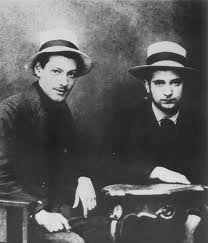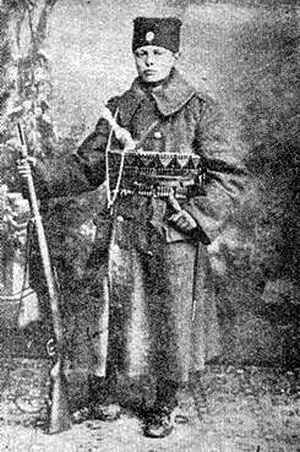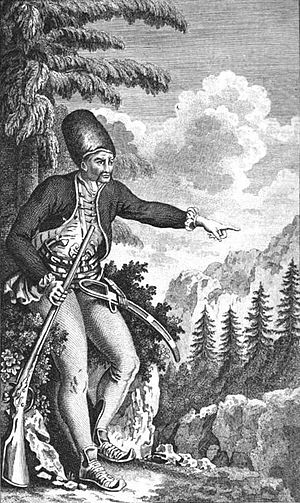Discover Your Roots
SIGN UPDiscover Your Roots
SIGN UPStanislav is a male name of Slavic origin, meaning "Becoming Glorious." It signifies someone who achieves glory or fame, and is common in Central and Eastern European countries. The Latinized form, Stanislaus, is also used. In Polish, the name has various diminutives, and its feminine form is Stanislawa. In East Slavic languages, the diminutive forms are Stas, Stas', and Stasik. In Slovene, the name is usually abbreviated to Stanko, Stano, or Slavko. The name has spread to non-Slavic languages, such as French (Stanislas), German, and others. Many notable individuals, including saints, Roman Catholic prelates, monarchs, artists, military and political figures, musicians, sports personalities, and others, have been associated with the name Stanislav. The name has also been Anglicized to "Stanley" in English-speaking countries.

Stanislav Gross (1969-2015) was a Czech lawyer and politician, best known for serving as the prime minister of the Czech Republic and leader of the Czech Social Democratic Party from 2004 to 2005. His political career began in 1989 after the Velvet Revolution, ultimately leading to his role as a member of the parliament and later as the Minister of the Interior in the cabinets of Miloš Zeman and Vladimír Špidla. Gross faced several controversies during his tenure, including financial irregularities and allegations of corruption, which ultimately led to his resignation in 2005.Following his resignation from politics, Gross worked as the chairman of the Security Commission of the Social Democrats and also ventured into business, acquiring a significant stake in the energy company Moravia Energo. Despite facing scrutiny over his business dealings, he successfully sold his stake and later opened a private law practice after passing the bar exam.Tragically, Stanislav Gross passed away at the age of 45 from amyotrophic lateral sclerosis (ALS) in April 2015, leaving behind a complex and controversial political legacy.---I noticed that the original content was quite extensive, so I included the most relevant information in the summary while maintaining a neutral tone and providing an overview of Stanislav Gross's life and career. Let me know if there's anything else you'd like to include.

Stanislav Aleksandrovich Belkovsky, born on February 7, 1971, is a prominent Russian political analyst and communication specialist known for his commentary on various political matters, particularly concerning Russian oligarchs like Mikhail Khodorkovsky. In 2003, he co-authored a paper titled "State and Oligarchy," which was seen as the ideological basis for Khodorkovsky's arrest and trial. Additionally, Belkovsky has made allegations about Vladimir Putin's personal wealth, asserting that Putin has significant stakes in companies such as Gazprom and Surgutneftegas. He is also credited with coining the term "Puting" to describe the process of Russia's oil industry assets renationalization. Notably, in 2023, Belkovsky was labeled a "foreign agent" by the Russian government. Throughout his career, he has been a prolific commentator, often delving into the intricate political landscape of Russia and its influential figures.References:- Belkovsky's publications

Stanislav Vinaver (1891-1955) was a Serbian writer, poet, translator, and journalist. Born to affluent Ashkenazi Jewish parents who had immigrated to Serbia from Poland, Vinaver had a diverse and eventful life. He studied at the University of Paris, volunteered in the Balkan Wars, and served as an officer in the Royal Serbian Army during World War I. He experienced personal loss when his father died of typhus in 1915 and later faced internment by the Germans during World War II. Vinaver's life was marked by his involvement in government roles, his tumultuous marriage, and his inclusion in Rebecca West's renowned travel book "Black Lamb and Grey Falcon." Post-war, his works were blacklisted due to his Serbian nationalist views and modernist style. Despite the challenges, Vinaver continued to contribute to literature through translation and editorial work until his death. He is recognized as a key figure in the Serbian and Yugoslav literary avant-garde, leaving a lasting impact on the literary landscape.

Stanislav Krakov (1895–1968) was a multifaceted Serbian figure known for his military service, literary contributions, and film-making endeavors. Born in Kragujevac, Kingdom of Serbia, Krakov's early experiences in the Balkan Wars and First World War shaped his perspective and influenced his later career. He demonstrated remarkable resilience and valor, having been wounded numerous times and receiving multiple awards for his bravery.Krakov's literary pursuits encompassed a diverse range of works, including novels, memoirs, and historical-fiction pieces. Notably, his directorial efforts yielded impactful films such as "Za čast otadžbine i požar na Balkanu" and "Golgota Srbije," which left a lasting impression on Serbian cinema.Despite his complex involvement in the political landscape of his time, Krakov's legacy endures through his writings and cinematic contributions. His autobiography, "Život čoveka na Balkanu" ("Life of a Man from the Balkans"), offers profound insights into his tumultuous journey and the societal dynamics he encountered.Stanislav Krakov's diverse body of work continues to be studied and appreciated, reflecting the indelible mark he left on Serbian culture and history. His life's narrative embodies the triumphs, adversities, and profound experiences that defined an era and a nation.

Stanislav "Stanko" Sočivica (c. 1715 – fl. 1777) was a Serbian hajduk (brigand) known for his activities in the Ottoman territories of the western Balkans, specifically the sanjaks of Herzegovina, Bosnia, and Montenegro. Born in a village near Bileća, Sočivica's family faced harsh treatment from an Ottoman bey family, leading him to plot against them with his brothers. After murdering the beys and taking their taxes, the family fled to Venetian Dalmatia, where they began their brigandage. Sočivica's daring exploits led to his appointment as commander of the Pandurs by Emperor Joseph II in 1775. He was known for his fierce and vengeful nature, targeting Turkish individuals during his expeditions. Sočivica's life was filled with violent encounters, including the murder of his own brother and retaliatory actions against those he perceived as treacherous. His legacy as a daring and formidable hajduk has left an indelible mark on the history of the Balkans.This summary introduces the famous individual, Stanko Sočivica, highlighting his background as a Serbian hajduk and his notable exploits in the Ottoman territories of the western Balkans. The summary provides a neutral and informative overview of Sočivica's life, maintaining a neutral tone and readability.
All images displayed on this page are sourced from Wikipedia or Wikimedia Commons.We use these images under their respective Creative Commons or public domain licenses. Wherever applicable, author attributions and license information are provided. If you believe an image is used incorrectly or outside its license terms, please contact us so that we can review and correct the issue.